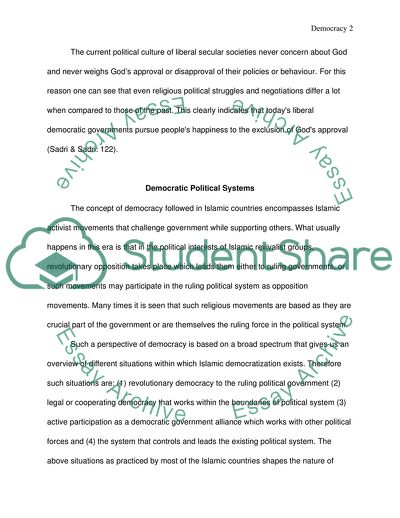Cite this document
(Democracy and Religion in Developing Countries Coursework, n.d.)
Democracy and Religion in Developing Countries Coursework. https://studentshare.org/politics/1719172-democracy-and-religion-in-developing-countries
Democracy and Religion in Developing Countries Coursework. https://studentshare.org/politics/1719172-democracy-and-religion-in-developing-countries
(Democracy and Religion in Developing Countries Coursework)
Democracy and Religion in Developing Countries Coursework. https://studentshare.org/politics/1719172-democracy-and-religion-in-developing-countries.
Democracy and Religion in Developing Countries Coursework. https://studentshare.org/politics/1719172-democracy-and-religion-in-developing-countries.
“Democracy and Religion in Developing Countries Coursework”. https://studentshare.org/politics/1719172-democracy-and-religion-in-developing-countries.


